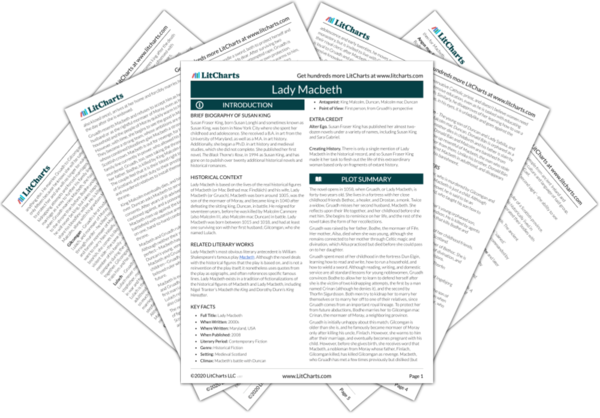Duncan knows he will be king, indicating the nepotism at play in Scottish succession. Gruadh knows that Duncan and his family were responsible for the death of her father, and so subtly suggests Duncan and his family will pay. Unfortunately, because she is a woman Malcolm plans to take the lands that belong to her away, only angering her further.
